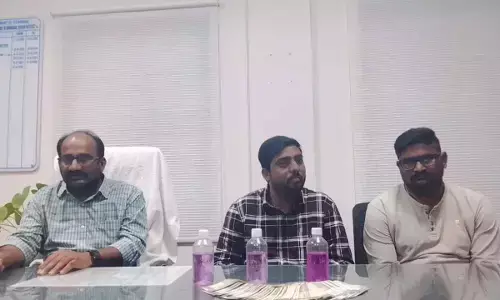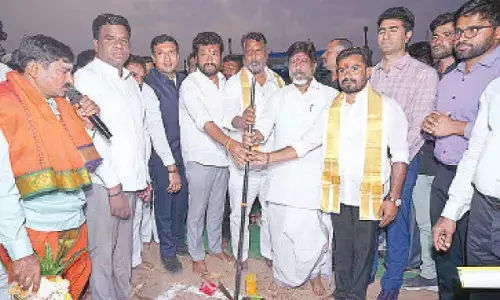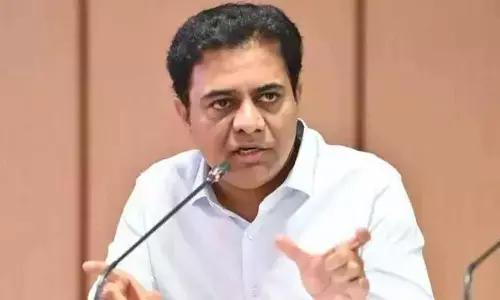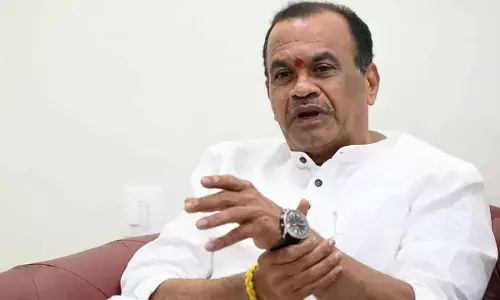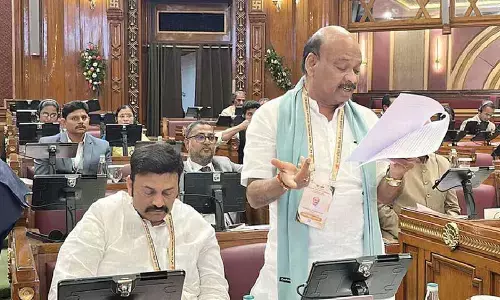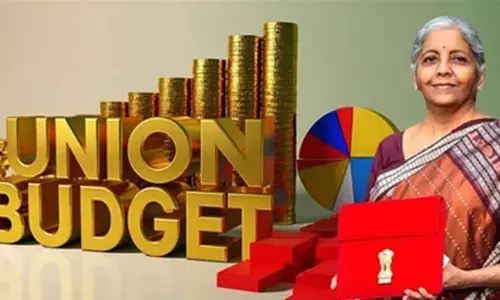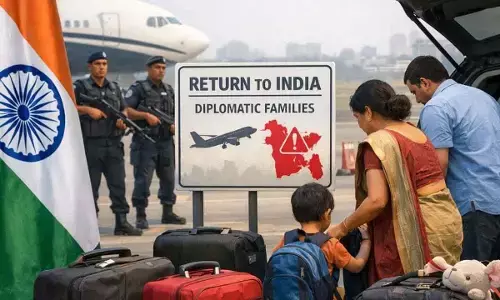Policy reports cannot be M Phil Dissertations
Policy reports cannot be M Phil Dissertations, Business Management, K S Chalam. The ‘Report of the Committee on Comprehensive Financial Services for Small Businesses and low Income Households’ under the chairmanship of Nachiket Mor is just out.
The country is jubilant with the triumph of the middle classes who are hurt with the insensitive attitude of the governments towards their needs. The business community particularly the corporate houses are happy that the classes that are effective consumers are responding to their market charms and would respond effectively with the increase in their incomes in future. Then how to get them engaged commercially is a Business Management problem. Can this be taken as a problem for an academic study?
There are fascinating debates over the need to abolish all taxes to induce the business and corporate groups to bring in more efficiency to double our wealth in short period of time and eliminate poverty altogether just in a decade. The RBI has appointed a committee of Bankers to study financial inclusiveness. These two important issues though appear to be independent and parallel, are the economic agenda points for the future government. There seem to be no published document on the abolition of tax yet, but the people who are airing the issue are capable of influencing polices at the centre.
The ‘Report of the Committee on Comprehensive Financial Services for Small Businesses and low Income Households’ under the chairmanship of Nachiket Mor is just out. This is a report headed by an economist turned banker with Pennsylvania University qualifications with the support of about a dozen experts in the field recommending policies to be implemented by the RBI/Government. The terms of reference of the report are basically related to frame a clear and determined vision of financial inclusion and deepening, with a design to execute and monitor the implementation of the policy. It seems the committee is overloaded with private bankers including the infamous Vikram Pandit of ex-Citi Bank. It is reported that there was an internal dissent over the recommendations and in all probability it could be due to the wish list of the private bankers.
The report has arrived at a six point vision consisted of the following:
1. A Universal Electronic Bank Account.
2. Ubiquitous Access to Payments and Deposit Products at Reasonable Charges.
3. Sufficient Access to Affordable, Formal Credit.
4. Universal Access to Investment Products at Reasonable Charges.
5. Universal Access to Insurance and Risk Management Products at Reasonable Charges.
6. Right to Suitability.
The goals laid by these six vision statements and the desired outcomes are 1. Each Indian resident above the age of 18 will have access to financial services within fifteen minutes’ walk by 2016. 2. The credit to GDP ratio of 50% should be achieved in every district by 2020. 3. Universal coverage of risk management with reasonable charges by 2016 etc. The recommendations that enticed controversy are: All loans given to landless labourers, small and marginal farmers are to be counted as Agriculture lending and no direct subsidy to the farmer. CRR and SLR of RBI are to be abolished. Definition of doubtful assets as of now as 12 months period is to be revised. Current capitalisation of foreign equity funding to be relaxed and money laundering concerns should be mitigated through measures of reporting by dealers and brokers. The priority sector lending is to be raised to 50 per cent to fund Godowns, Silos, Ware houses and Non-Banking Financial companies, NBFC etc. The permission to fix price of farm loans below base rate should be withdrawn and Banks be allowed to fix the rates as per market conditions. Link the UDAI Aadhar card with all bank accounts. There are several other constructive recommendations like linking the mobile phones with the customer in consultation of TRAI, Verification of credentials of the client, Grievance redressal mechanism to help the customer and so on.
This is not the first time that a committee was constituted to recommend financial inclusive polices. In fact RBI constituted a committee under C Ranga Rajan in 2008, who defined inclusion as “a process of ensuring access to financial services timely and adequate credit where needed by vulnerable groups such as weaker sections and low income groups at an affordable cost.” He has reviewed the conditions and found that 54 per cent of the households do not have access to credit and therefore recommended a National Rural Financial Inclusion plan and commended that the functioning of RRBs is satisfactory with 33% coverage. He has also recommended SHG-Bank linkage scheme and revitalisation of cooperative system to ensure financial inclusion. Ranga Rajan has kept the system of the economy as a whole in mind while making the recommendations unlike the present banker’s report. What happened to the 2008 recommendations and why this report again?
The 265 pagesof the present report produced in three months, reminds one, the kind of dissertations that the young enthusiastic scholars in social sciences create. For instance, an M Phil Dissertation is a basic exercise done by a scholar to take up serious study of the problem given by the supervisor, first concentrates on the topic nothing else. She/he devotes all the time and pages elucidating her/his account of the topic and not much on the linkages. This is explicable as M Phil is only preparation for a serious study and cannot be adjudged as a comprehensive work. But, policy reports that are adopted by the government affecting the lives of millions, should be comprehensive enough to conjecture the inter linkages of milliard issues in a pluralistic country like India. India is not New York to get a Bank outlet within 15 minutes’ walk, curtail agriculture etc. In fact, the Report sought to reorient the whole economy.
Yet, they have not looked at the fact that out of Rs 7585.8 billion of broad money M3, only Rs 1138.3 billion or 15% per ent is with the public. The recommendations look like the last chapter of a dissertation, relate to them (rise to 30%). Is it a strategy to control the economy and society with such a low premium? India is diverse in several respects where many traditional transactions are still conducted in diverse forms other than money. Further, we had unpleasant experiences with the tyranny of Micro Finance, Sahara, Scams, Chits and Cheats where the poor and gullible are ended up as victims. What would happen to them if the whole economy is monetised and handed over to few corporate (foreign) houses?
Money is not only a store of value, a unit of account, medium of exchange, differed payment, but a sinew of political war in modern times. It cannot be left to the whimsies and fancies of the market players. After all, RBI or any Central Bank has the responsibility to regulate the economy with monetary and fiscal (taxes) policies. How is it possible to moderate the market economy without CRR, SLR, subsidies, taxes and other instruments?









